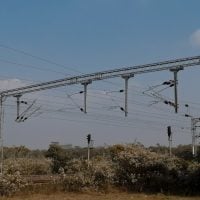Deadline: 8 June 2020
The COVID-19 Response & Recovery Transport Research Fund is inviting Project Concept Notes (PCNs) to support research that addresses COVID-19 and its effects and impacts on the transport sector: national, rural and urban.
The fund has been established by the Research for Community Access Partnership (ReCAP) and the High Volume Transport Applied Research Programme (HVT) as part of the UK Department for International Development’s (DFID) response to COVID-19.
COVID-19 is having a devastating socio-economic impact globally. It has been acutely felt by people in low-income countries (LICs). Transport is at the centre of managing the spread of the pandemic and will be key to ensuring rapid and sustained recovery. A recent Call for Action has highlighted the need for:
- curation of LIC-specific information,
- a common platform for COVID-19 impacts information, and
- transformative transport agenda for a post-COVID-19 world.
The fund will support research that provides:
- innovation and technology that can help manage immediate response and guide recovery;
- evidence based thinking (thought pieces) and papers that guide response and/or recovery and policy in a changed transport world;
- fast-tracking of knowledge, experience, learning resources and best practice to those who need it in LICs.
The Challenge Fund comprises of three lots:
- Lot 1 – COVID-19 and transport including cross-cutting areas and inclusion
Eligible areas for grant support under Lot 1 will focus on the effects and impact of COVID-19 on cross-cutting themes between low volume and high volume transport communities and systems. These include questions such as:- What are the opportunities that national response; economic stimulus, financing and recovery strategies bring for transport (incorporating passenger, freight, formal and informal, low and high volume transport) and how do we ensure that such opportunities are not missed?
- What are the impacts of and responses to COVID-19 in addressing social inclusion and equity issues in low/high-volume transport (including e.g. gender differences in mobility impacts, impacts on personal
security and sexual harassment particularly of women, impacts on mobility of people with disabilities, impacts on mobility of young and older people)? - What has the COVID-19 pandemic taught us about infection control and public health safety measures for both formal and informal transport systems?
- How has the COVID-19 pandemic impacted on road crashes?
- Does the COVID-19 pandemic signal opportunities for a transition to low-carbon and cleaner transport
systems (including transport-related air pollution and emissions, transition to low- or zero-carbon vehicles, ability to meet national and local climate change mitigation commitments etc.). What have we learned about the impacts and opportunities for climate change from the pandemic for the transport sector? - What lessons can be learned from other outbreaks/pandemics that are transferrable to the transport sector when addressing COVID-19 (e.g. HIV/AIDS, Ebola, SARS, Zika)?
- What are we learning for transport planning mechanisms and processes for emergencies and essential
services under COVID-19?
- Lot 2 – COVID-19 and low volume / rural transport
Eligible areas for grant support under Lot 2 will focus on the effects and impact of COVID-19 on rural communities and access to transport. . These include questions such as:
-
- What have been the effects/impacts of COVID-19 on rural transportation systems (including the informal transport sector) and what successful innovative solutions have been adopted to keep transport moving?
- What have been the impacts of COVID-19 on rural transport system costs?
- What are the technology and innovation based solutions that can be deployed to cost-effectively address
COVID-19 impacts on rural transport, road design and construction, and support to rural communities (e.g.
food and medical supplies) – including health and safety considerations for rural transport design and
implementation? - What are the impacts of and responsesto COVID-19 on rural communities’ access to essential services (food,
energy, education, health centres, Water, Sanitation & Hygiene (WASH) services, etc.)? - What have been the impact and implications of social distancing on rural transport?
- What have been the socio-economic impacts of COVID-19 on rural development from the transport perspective and in what ways can rural transport systems support post-COVID-19 economic recovery and
rural development? - What changes do we need to make to the role of rural transport for COVID-19 response services (e.g. mobile COVID-19 testing services, vaccine delivery when and if available, etc)?
- With reference to COVID-19 experience, how can we build rural transport systems that are resilient to climate change, shocks, future pandemics and disaster?
- Lot 3 – COVID-19 and high volume / national and urban transport systems
Eligible areas for grant support under Lot 3 will focus on the effects and impact of COVID-19 on strategic, national, urban and inter-urban transport systems. These include:- What have been the effects/impacts of COVID-19 on national and urban transport systems (including the informal transport sector) and what innovative solutions have been adopted to keep transport moving?
- What changes do we need to bring to transport planning and managing and operating urban transport as a result of shocks such as COVID-19? How can the transport sector ensure access to essential services such as food and healthcare and access to workplaces for key workers during periods of lockdown?
- How have urban transport operators managed operations during lockdowns and what practices need to be sustained through recovery and beyond?
- What technology and innovation based solutions have emerged for urban and high volume transport as a result of the pandemic? How can the best of these be scaled through recovery and beyond? This would also address walking, cycling, informal and shared services.
- How exposed have transport workforces been to COVID-19 and what solutions are available to reduce risk and exposure?
- What lessons have been learned and what good practices exist for freight transport and logistics in the continuity in supply chains, (at either international, national or urban scales) as a result of COVID-19?
- How should land transport (passenger and/or freight) across districts, cities, states and national boundaries be managed under COVID-19? What are the sharable lessons?
- How do we make social distancing work for urban, rural and/or national transport systems?
Funding Information
- A total budget of £1 million has been made available jointly by the ReCAP and HVT programmes for this Challenge Fund. As they are open to innovative ideas, they have purposely left the Challenge Fund to target a broad range of proposals – from brief insight papers to full research projects. Consequently, they have not included a fixed budget cap for each project, as they might vary widely.
- However, as an indication, they would expect to receive PCNs for three main categories of funding: smaller projects of up to £10,000 for short insightful papers and thought pieces, up to £20,000 for work involving more detailed analysis in relatively short timeframe (e.g. up to 2-3 months), and larger research projects of up to £50,000 of longer timeframe (e.g. 6 months). It is envisaged that some 30 to 40 projects may be awarded through the Challenge Fund.
Criteria
- To encourage innovation and possible influence on future programming by both DFID and ReCAP/HVT’s efforts with responding to this or a future pandemic, other areas may be considered accordingly on a case-by-case basis, providing there is linkage to COVID-19 response and recovery in the context of transport in Low-Income Countries (LICs).
- Individual and/or organisation are eligible to submit PCNs, independently or in collaboration with other individuals or organisations. The proposed interventions must have relevance to the lowincome countries in Africa and South Asia, currently supported by ReCAP and HVT.
- All researchers are eligible to submit PCNs. Proposals from or including researchers based in one or more of the DFID focus countries are particularly welcome.
- Upon receipt, PCNs will be reviewed according to set compliance screening and criteria, including:
- Challenge: What is the COVID-19-related transport challenge that the proposal seeks to address?
- Approach and Methodology: Including innovation where applicable Impact: Potential to empower people, and inform policy decisions, government strategies and/or investments in LICs on appropriately responding to the impacts of COVID-19 in the transport sector.
- Knowledge exchange: Fostering the exchange of learning in addressing the COVID-19 challenge between highincome or middle-income countries and low-income countries.
- Value for money: Proposed projects should clearly demonstrate that costs are both appropriate and commensurate to expected benefits. Evidence of value for money could also include the existence of cofunding, or collaboration with another transport-focused development programme.
- Measurability: Projects must describe the main impacts they are expected to have with clearly defined projectspecific indicators designated for monitoring the impact of the project.
- Time-bound: Time is of the essence. Project delivery time should be as short as possible and strike a balance between quality and speed.
For more information, visit https://transport-links.com/news/covid-19-and-transport-launch-of-response-and-recovery-research-fund/









































